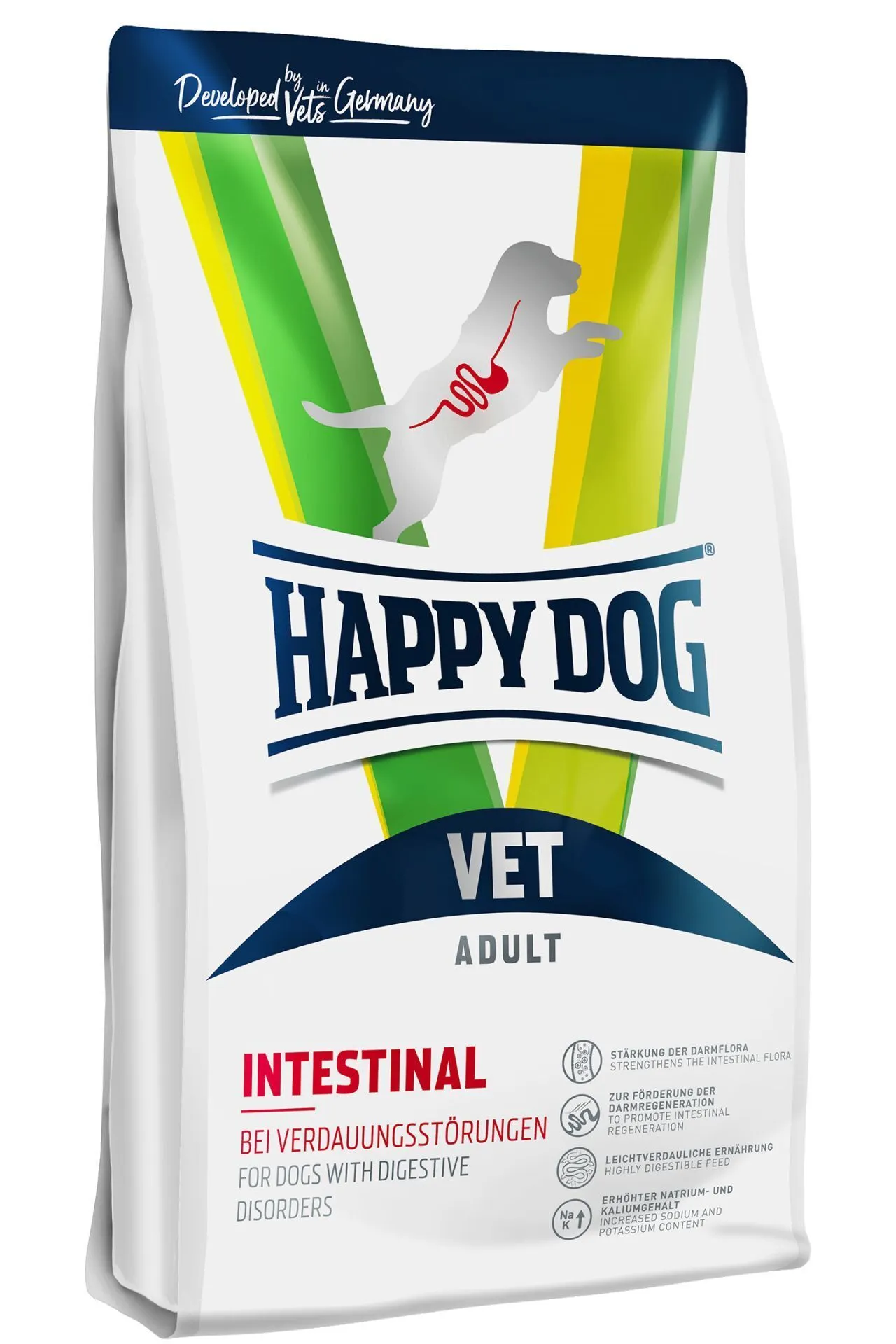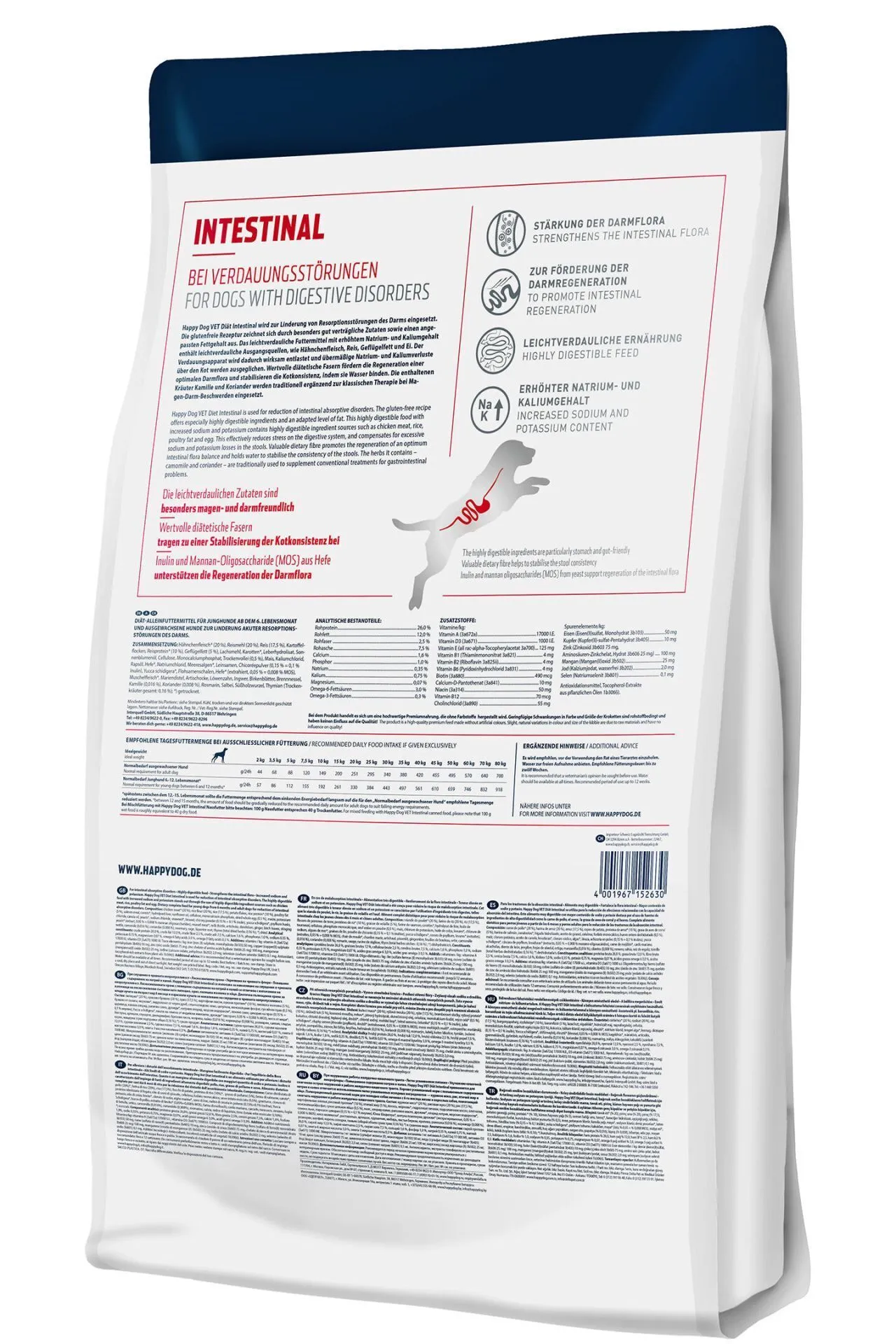A dog’s intestinal health is fundamental to their overall well-being and happiness. Just like humans, dogs can experience a range of digestive issues, from occasional upset stomachs to chronic conditions that significantly impact their quality of life. Understanding how your dog’s digestive system works and what contributes to a “Happy Dog Intestinal” environment is crucial for every responsible pet owner. This guide will delve into the intricacies of canine digestion, common problems, and how specialized nutrition can play a pivotal role in maintaining a healthy gut. Ensuring your furry friend has a robust digestive system is key to their vitality, energy levels, and even their mood, making gut health a cornerstone of comprehensive dog care. cat grooming prices
Understanding Your Dog’s Digestive System
The canine digestive system is a complex and efficient pathway designed to extract nutrients from food. It begins in the mouth, where mechanical breakdown starts, then moves through the esophagus, stomach, small intestine, and large intestine, ending with waste elimination. Each part plays a vital role. The stomach breaks down food with acids and enzymes, but the small intestine is where most nutrient absorption occurs. This process relies heavily on a balanced microbiome – a community of billions of bacteria, fungi, and other microorganisms living in the gut. A healthy microbiome is essential for digestion, nutrient synthesis, immune system function, and even influencing your dog’s behavior. When this delicate balance is disrupted, it can lead to various health problems.
Common Canine Digestive Disorders and Their Signs
Dogs can suffer from a multitude of digestive issues, ranging from mild and temporary to severe and chronic. Recognizing the signs early can help you seek appropriate veterinary care and prevent further complications. Common symptoms often include vomiting, diarrhea, constipation, excessive gas, abdominal pain, loss of appetite, weight loss, and changes in stool consistency or frequency.
Some prevalent digestive disorders include:
- Acute Gastroenteritis: Often caused by dietary indiscretion (eating something they shouldn’t), bacterial infections, or parasites, leading to sudden vomiting and diarrhea.
- Chronic Enteropathies (e.g., Inflammatory Bowel Disease – IBD): Long-term inflammation of the gastrointestinal tract, often requiring ongoing management. Symptoms are persistent or recurring diarrhea, vomiting, and weight loss.
- Exocrine Pancreatic Insufficiency (EPI): The pancreas doesn’t produce enough digestive enzymes, leading to maldigestion and nutrient deficiencies. Signs include chronic diarrhea, weight loss despite a good appetite, and greasy stools.
- Food Sensitivities or Allergies: Adverse reactions to specific ingredients, causing gastrointestinal upset and sometimes skin issues.
- Dysbiosis: An imbalance in the gut microbiome, which can be a cause or consequence of many digestive problems.
If you observe any persistent or severe digestive symptoms in your dog, it is crucial to consult your veterinarian for an accurate diagnosis and treatment plan. Self-treating can sometimes exacerbate the issue or mask a more serious underlying condition.
The Pivotal Role of Diet in Intestinal Health
Diet is arguably the most significant factor in maintaining a happy dog intestinal environment. The right food can support digestion, promote a balanced gut flora, and reduce the likelihood of upsets. For dogs with sensitive stomachs or diagnosed digestive disorders, a specialized diet is often recommended. Key dietary considerations for optimal gut health include:
- Highly Digestible Ingredients: Foods made with easily digestible proteins, carbohydrates, and fats reduce the workload on the digestive system, allowing for better nutrient absorption and minimizing undigested food that can ferment and cause issues. Ingredients like chicken, rice, and specialized protein sources are often preferred.
- Gluten-Free Formulations: For dogs with sensitivities to gluten, a gluten-free diet can significantly alleviate digestive symptoms and promote gut healing. While not all dogs are gluten-sensitive, opting for such formulations can reduce potential irritants.
- Dietary Fiber: Both soluble and insoluble fibers play crucial roles. Soluble fiber can absorb excess water, helping to firm stools, while insoluble fiber adds bulk and promotes regular bowel movements. Specific fibers like psyllium husks and chicory root (source of inulin) are beneficial.
- Prebiotics and Probiotics: Prebiotics (like inulin and MOS) are non-digestible food ingredients that stimulate the growth and activity of beneficial bacteria in the colon. Probiotics are live beneficial microorganisms that can be introduced to the gut to improve its microbial balance. Together, they create a synergistic effect, fostering a thriving gut flora.
- Balanced Electrolytes: When dogs experience vomiting or diarrhea, they can lose essential electrolytes like sodium and potassium. Specialized diets often contain increased levels of these minerals to compensate for such losses and aid recovery.
Happy Dog VET Diet Intestinal: A Specialized Solution
For dogs facing digestive challenges, a veterinary special diet like Happy Dog VET Diet Intestinal dry offers a targeted approach to support recovery and long-term well-being. This dietary complete feed is specifically formulated to address intestinal absorptive disorders in young dogs from six months and adult dogs. Its meticulously crafted, gluten-free recipe focuses on ingredients that are gentle on the stomach and intestine while promoting a healthy gut environment.
 Happy Dog VET Diet Intestinal packaging, showing a dog with digestive system graphics
Happy Dog VET Diet Intestinal packaging, showing a dog with digestive system graphics
The formulation includes highly digestible sources like chicken meat, rice, poultry fat, and egg, which are known for being easy on the digestive tract. An adapted fat level further reduces the burden on the digestive system, making it suitable for managing various conditions. Furthermore, the inclusion of increased sodium and potassium helps to counterbalance the excessive losses often associated with diarrhea and vomiting, supporting rehydration and electrolyte balance. The diet also incorporates valuable dietary fibers, which are essential for regenerating an optimal intestinal flora balance and stabilizing stool consistency by holding water. Traditional herbs such as chamomile and coriander are included for their long-standing use in complementing conventional treatments for gastrointestinal issues, providing an extra layer of soothing support. Inulin and mannan oligosaccharides (MOS) derived from yeasts further bolster the regeneration of a balanced intestinal flora, which is vital for sustained gut health.
Ingredients for a Healthy Gut
Happy Dog VET Diet Intestinal dry is composed of a carefully selected list of ingredients designed to be both nutritious and gentle. Key components include:
- Proteins: Chicken meat, rice protein, salmon meal, dried whole egg provide highly digestible protein sources.
- Carbohydrates: Rice flour, rice, and potato flakes offer easily assimilated energy.
- Fats: Poultry fat, sunflower oil, and canola oil provide essential fatty acids.
- Fibers & Prebiotics: Cellulose, chicory powder (inulin), psyllium husks, and yeast extracts (MOS) support gut motility and beneficial bacteria.
- Herbal Blend: Chamomile, coriander, milk thistle, artichoke, dandelion, ginger, birch leaves, stinging nettle, rosemary, sage, liquorice root, and thyme contribute to digestive comfort and overall well-being.
This comprehensive blend aims to provide complete nutrition while actively supporting digestive function and recovery.
 Back of Happy Dog VET Diet Intestinal packaging with nutritional information
Back of Happy Dog VET Diet Intestinal packaging with nutritional information
Feeding Guidelines and Veterinary Consultation
When considering a specialized diet like Happy Dog VET Diet Intestinal, it is paramount to consult with your veterinarian. This dietary food is intended for specific medical conditions and should only be used under professional guidance. Your vet can accurately diagnose your dog’s condition and determine if this diet is the most appropriate course of action. They can also advise on the correct feeding amounts based on your dog’s individual metabolism, age, and ideal weight.
Typically, for best results, it is recommended to feed this dietary food exclusively for the duration prescribed by your vet, which is often initially up to 12 weeks. Small, frequent meals throughout the day can also help reduce the strain on a compromised digestive system. Always ensure your dog has access to fresh water. Never introduce complementary foods or switch diets without your veterinarian’s approval, as this could counteract the benefits of the specialized diet. Your vet is your best resource for tailored advice to ensure a happy dog intestinal system.
Conclusion: Prioritizing Your Dog’s Digestive Health
A happy dog intestinal system is a cornerstone of a happy and healthy dog. Recognizing the signs of digestive distress, understanding the pivotal role of diet, and seeking professional veterinary advice are critical steps for any dog owner. Specialized diets, such as Happy Dog VET Diet Intestinal, are expertly formulated to provide comprehensive support for dogs experiencing digestive disorders, offering easily digestible ingredients, gut-supporting fibers, and a careful balance of nutrients. Always remember that managing your dog’s intestinal health is an ongoing journey that requires patience, observation, and a close partnership with your veterinarian. By prioritizing their digestive well-being, you contribute significantly to their overall health, vitality, and quality of life.
